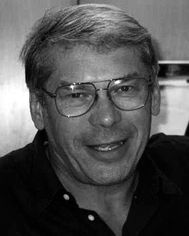DOI: 10.1039/B504930J
(Profile)
Analyst, 2005, 130, 996-997
Jiri Janata, Georgia Institute of Science and Technology
Abstract
The Analyst profiles Jiri Janata, Georgia Research Alliance Eminent Scholar in the School of Chemistry and Biochemistry, Georgia Institute of Science and Technology.
Biography
Professor Jiri Janata is Georgia Research Alliance Eminent Scholar in the School of Chemistry and Biochemistry, Georgia Institute of Science and Technology. Between 1991 and 1997 he was an Associate Director of Environmental Molecular Sciences Laboratory, Pacific Northwest National Laboratory, in Richland, Washington. Prior to that appointment he was Professor of Materials Science and Professor of Bioengineering at the University of Utah for 17 years. He was born in Czechoslovakia where he received his PhD degree in analytical chemistry from the Charles University (Prague) in 1965. His current interests include solution and electroanalytical chemistry with particular emphasis on development of chemical integrated solid state sensors (visit http://www.chemistry.gatech.edu/faculty/janata/janata.html).
1. Did you always have a passion for analytical science from a young age, or was it something you later became interested in?
For me science is about finding the truth. To be truthful is something that my mother taught me ever since I can remember. So, if you accept my definition of science, I have been interested in it from a very young age indeed. For my first interest in chemistry I give credit to my gymnasium professor. Analytical chemistry fascinated me when, as a gymnasium student, I took a summer job in an analytical control laboratory of a fertilizer factory where I analyzed hundreds of samples of concentrated sulfuric acid and performed tens of gravimetric analyses of phosphates. It became somewhat boring at the end but a very intense lesson in accuracy and precision of real analysis, nevertheless. Later I also learned to do routinely the classical Kjeldahl determination of nitrogen and became so fascinated with it that I asked my professor if I could build a Kjeldahl apparatus for the chemistry class. He agreed and it became probably the one and only operating Kjeldahl at any gymnasium. At that point I was at the beginning of my “analytical career”.2. Who has been the most inspirational to you?
In my mind there is very little difference between art and science. Therefore, works of great artists, musicians and scientists became my inspiration. When you look at it you recognize that a great work is always honest and truthful, as well as interesting. Beyond that I cannot think of any other, more specific inspiration that influenced my work.3. What are your current research interests, and what do you hope to achieve?
My current projects include development of new methods of preparation of materials with unique properties and new techniques of investigation, or new research tools if you want. My biggest project at the moment is rewriting my chemical sensors book which was first published more than fifteen years ago and which needs cleaning up and updating.4. What do you find to be the most rewarding aspect of your career?
Undoubtedly teaching. Be it in the classroom, guiding my students in the laboratory or trying to educate the general public on some broad scientific issue. The latter is on the border of somewhat evangelical, but that is alright as long as the message is genuine. The two evangelical messages that I have been preaching are the issue of “nuclear waste and energy” and “analytical chemistry in security”.5. What do you think lies in store for the future of analytical research?
Analytical chemistry will have a bright future as long as it keeps asking “why and how” and searching for honest answers. It should be “physical chemistry with a purpose”, not only chemical analysis.6. You were elected Honorary Member of the Czech Learned Society in 2001. What do your Czech roots mean to you?
It was an unexpected and unsolicited award. No money, only quiet recognition by my Czech peers of my work. It has been particularly important for me because in the communist past that “honor” had political, materialistic overtones. I am very proud of my Czech roots. I feel strongly connected to the history, the culture and the beauty of my country and to its scientific accomplishments, but not quite as much to the present Czech society. You see, like many Czech exiles from the communist past I am not even allowed to hold Czech citizenship. It is an unfair and absurd aberration in the European legal system.7. When not pursing activities in the scientific community, what other pastimes do you enjoy?
Music and arts in general. In my collection of CDs I have every note that Mozart wrote, some in multiplicate. I love modern paintings and sculpture. I like hiking in the mountains and in the desert and I am passionate about skiing.8. Where in the world would you most like to visit and why?
There are too many places that I have not visited, but my most immediate desire is to visit Israel and Egypt. The history of that region is just too fascinating to be missed. I will be on sabbatical for part of the next year. It has to do with re-writing my book. Part of that sabbatical will be at the Weizmann Institute which gave me the Rosi and Max Varon Visiting Professorship.9. What is your most memorable moment?
I cannot answer that honestly and accurately. There have been too many to recall: ...sunrise on Mt. Hood, talking to the students at the Charles University in 1989, paintings in the Vatican Library... There have been too many and I hope that there will be another one today and more in a few days to come.| This journal is © The Royal Society of Chemistry 2005 |

